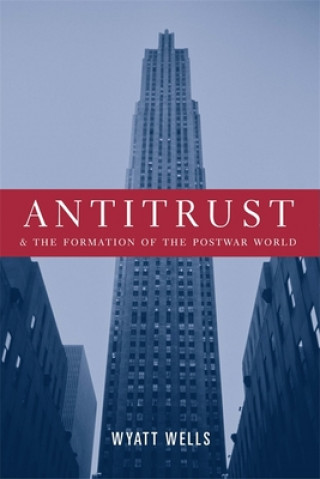
Code: 02785063
Antitrust and the Formation of the Postwar World
by Wyatt C. Wells
Today antitrust law shapes the policy of almost every large company, no matter where headquartered. But this wasn't always the case. Before World War II, the laws of most industrial countries tolerated and even encouraged cartels, ... more
- Language:
 English
English - Binding: Paperback
- Number of pages: 240
Publisher: Columbia University Press, 2003
- More about this

You might also like
Give this book as a present today
- Order book and choose Gift Order.
- We will send you book gift voucher at once. You can give it out to anyone.
- Book will be send to donee, nothing more to care about.
More about Antitrust and the Formation of the Postwar World
You get 113 loyalty points
 Book synopsis
Book synopsis
Today antitrust law shapes the policy of almost every large company, no matter where headquartered. But this wasn't always the case. Before World War II, the laws of most industrial countries tolerated and even encouraged cartels, whereas American statutes banned them. In the wake of World War II, the United States devoted considerable resources to building a liberal economic order, which Washington believed was necessary to preserving not only prosperity but also peace after the war. Antitrust was a cornerstone of that policy. This fascinating book shows how the United States sought to impose -- and with what results -- its antitrust policy on other nations, especially in Europe and Japan. Wyatt Wells chronicles how the attack on cartels and monopoly abroad affected everything from energy policy and trade negotiations to the occupation of Germany and Japan. He shows how a small group of zealots led by Thurman Arnold, who became head of the Justice Department's Antitrust Division in 1938, targeted cartels and large companies throughout the world: IG Farben of Germany, Mitsui and Mitsubishi of Japan, Imperial Chemical Industries of Britain, Philips of the Netherlands, DuPont and General Electric of the United States, and more. Wells brilliantly shows how subsequently, the architects of the postwar economy -- notably Lucius Clay, John McCloy, William Clayton, Jean Monnet, and Ludwig Erhard -- uncoupled political ideology from antitrust policy, transforming Arnold's effort into a means to promote business efficiency and encourage competition.
 Book details
Book details
Book category Books in English Humanities History History: earliest times to present day
45.01 €
- Full title: Antitrust and the Formation of the Postwar World
- Author: Wyatt C. Wells
- Language:
 English
English - Binding: Paperback
- Number of pages: 240
- EAN: 9780231123990
- ISBN: 023112399X
- ID: 02785063
- Publisher: Columbia University Press
- Weight: 378 g
- Dimensions: 150 × 225 × 19 mm
- Date of publishing: 19. March 2003
Trending among others
-

Guns, Germs, and Steel
16.85 € -

The Origins of Totalitarianism
10.39 € -22 % -

History of the Decline and Fall of the Roman Empire
13.41 € -27 % -

Fear and Loathing on the Campaign Trail '72
13.31 € -28 % -
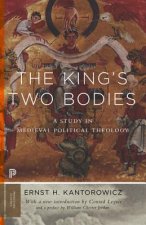
King's Two Bodies
27.24 € -11 % -

Seneca's Letters from a Stoic
10.99 € -22 % -

Rise and Fall of Ancient Egypt
17.25 € -28 % -
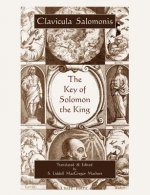
Key of Solomon the King (Clavicula Salomonis)
10.18 € -
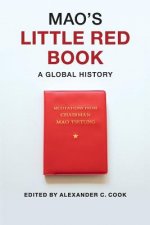
Mao's Little Red Book
24.92 € -25 % -

Merchant of Prato
11.29 € -28 % -

Medieval Italy
55.91 € -9 % -

Embracing Defeat
17.25 € -28 % -

Roman Legionary vs Carthaginian Warrior
18.16 € -19 % -

Road to Manzikert
17.35 € -18 % -

Ancient Syria
20.38 € -10 % -
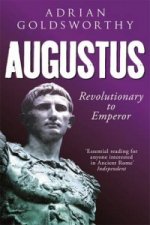
Augustus
15.33 € -27 % -

Trojan War
15.13 € -18 % -

East Roman Foreign Policy
54.80 € -2 % -

Imperial Roman Warships 27 BC-193 AD
16.64 € -10 % -

Hidden Figures
15.43 € -23 % -

Tuesdays With Morrie
11.09 € -3 % -

Tuesdays With Morrie
10.29 € -28 % -

Illustrated Encyclopedia of Uniforms of World War I
20.68 € -26 % -
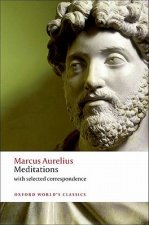
Meditations
8.57 € -22 % -

Peloponnesian War
12.30 € -28 % -

Underground
10.89 € -23 % -
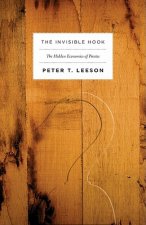
Invisible Hook
16.44 € -17 % -

Cold War
13.31 € -28 % -

Myth of the Andalusian Paradise
23.71 € -23 % -

Virgin Mother Goddesses of Antiquity
34.21 € -
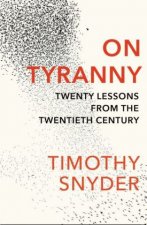
On Tyranny
9.78 € -26 % -
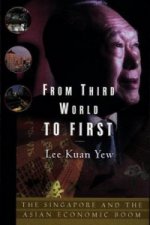
From Third World to First
14.02 € -20 % -

Tuesdays With Morrie
9.38 € -29 % -
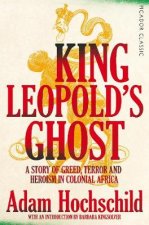
King Leopold's Ghost
13.21 € -15 % -

The Art of Combat
28.76 € -18 % -

Chernobyl Prayer
10.59 € -20 % -
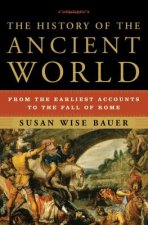
History of the Ancient World
33.20 € -6 % -

Age Of Extremes
17.15 € -22 % -

Age Of Empire
16.54 € -22 % -

Making Medieval Manuscripts
17.05 € -19 % -

Access to History for the IB Diploma: Causes and effects of 20th-century wars Second Edition
41.48 € -

Postwar
16.44 € -25 % -
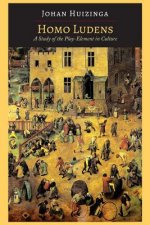
Homo Ludens
12.10 € -

Pearson Baccalaureate: History Causes and Effects of 20th-century Wars 2e bundle
59.34 € -

Distant Mirror
13.31 € -28 % -

Gallic War
9.28 € -28 % -
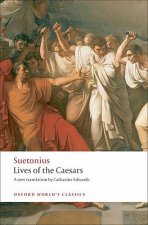
Lives of the Caesars
10.29 € -28 % -

Anunnaki Homeworld
16.64 € -20 % -

Witches and Pagans
25.12 € -2 %
Collection points Bratislava a 2642 dalších
Copyright ©2008-24 najlacnejsie-knihy.sk All rights reservedPrivacyCookies




 15549 collection points
15549 collection points Delivery 2.99 €
Delivery 2.99 € 02/210 210 99 (8-15.30h)
02/210 210 99 (8-15.30h)